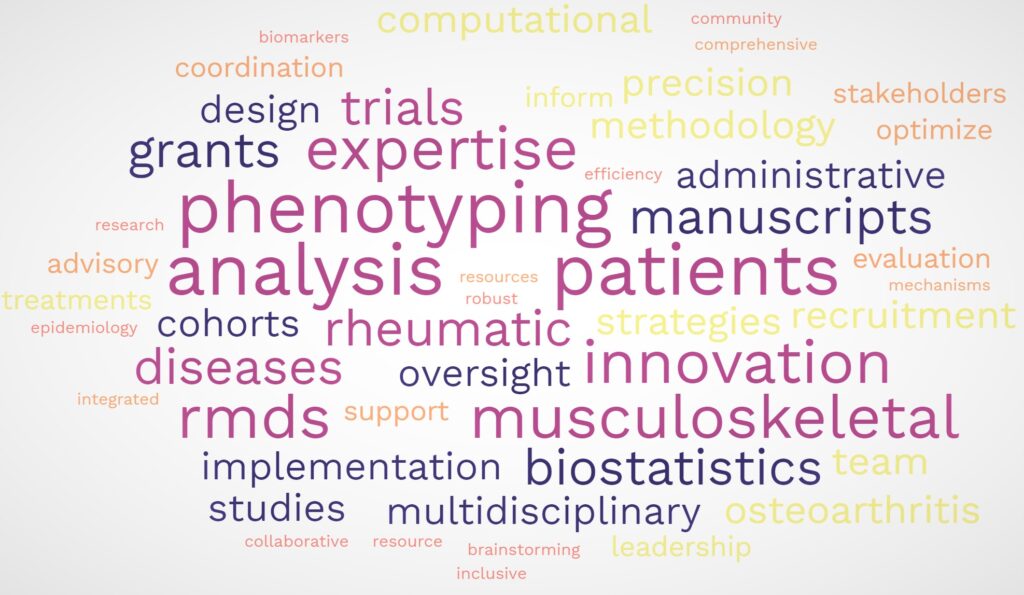Core Center for Clinical Research (CCCR)

We Help Researchers:
- Design, implement and analyze innovative studies of rheumatic diseases
- Significantly improve understanding of disease mechanisms
- Inform best strategies for prevention and treatment
- Significantly improve understanding of disease mechanisms

Offering You a Robust Engine for Your Clinical Research
Our CCCR consists of three main “Core” sections of expertise, which are built upon a deep bench of experts offering cross-disciplinary resources:
- Administrative Core: Provides leadership, oversight, coordination, evaluation and general administrative support for all CCCR activities.
- Methodology Core: Provides a comprehensive and integrated set of RMD-focused services to optimize the quality, efficiency and innovation of the CCCR research community.
- Phenotyping and Precision Medicine Resource Core: Provides services that will add value to and optimize the design and implementation of clinical studies, as well as develop innovative strategies to maximize the use and success of clinical phenotyping and precision medicine in RMDs, with a particular focus on OA.
Unique Benefits Customized to Your Needs:
Your Own Collaborative, Multidisciplinary Team of Leading Experts
We offer a highly inclusive approach to provide you with the most robust expertise in areas such as Rheumatic and Musculoskeletal Diseases (RMDs), Epidemiology, Biostatistics, Implementation Science, Health Disparities, and Computational Science.
To initiate the process of requesting information, data, and/or collaboration from UNC’s CCCR, please complete and submit this form.
